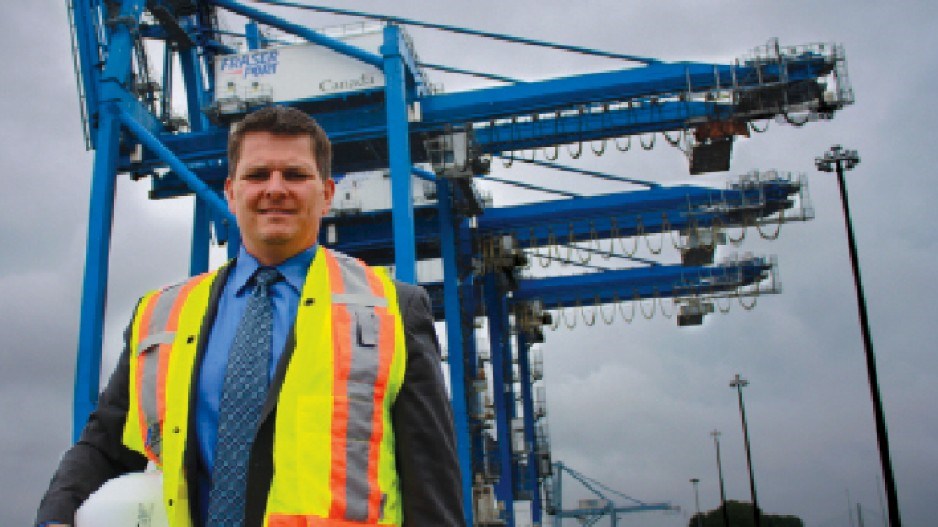A group of health and environment experts is calling on Port Metro Vancouver to scrap an ongoing environmental review for a proposed coal terminal on the Fraser River, saying the process is badly flawed.
But the CEO of the shipping company says the assessment builds on previous work done by impartial engineering firms and will be trustworthy.
On September 12, Port Metro announced an additional environmental impact assessment (EIA) for the proposed Fraser Surrey Dock coal expansion. The $15 million expansion would see the Surrey terminal handle up to four million tonnes of thermal coal shipped by rail from the United States.
The coal would then be shipped by barge to Texada Island, where it would be loaded onto ships to be transported to Asia.
Port Metro Vancouver is responsible for assessing the project and deciding whether to grant approval.
In an open letter, the group of experts, mainly made up of environment and health science professors from the University of British Columbia and Simon Fraser University, said that the assessment's terms of reference have not been made public, that the two-week timeframe is too short and that key stakeholders such as health authorities and local governments are not involved.
"By way of comparison, scoping for the EIA for the proposed coal port in Cherry Point, Washington took many months, and the draft EIA itself is expected to take up to two years," the letter states. "Fraser Health Authority has estimated that a comprehensive health impact assessment of the proposed coal port at Fraser Surrey Docks could take six months to a year."
The coalition also complained that the EIA does not include impacts on Texada Island or the Georgia Strait.
The environmental assessment used data and studies completed over the past 12 months, Jeff Scott, CEO of Fraser Surrey Docks, told Business in Vancouver. Those studies were completed by Lower Mainland firms Levelton Consultants and Triton Environmental Consultants.
SNC Lavalin will complete the current EIA.
"This is a compilation of a lot of analysis and data that had previously been completed … part of the EIA will bring all of those together," Scott said.
The environmental assessment will also take into account new coal dust mitigation measures, brought into place because of community concerns.
Those procedures include no longer housing a stockpile of coal at the terminal and adding a binding agent to the coal before it is shipped. BNSF Railway has also agreed to spray the coal being transported on rail cars before the trains enter Canada.
The open letter was released by anti-coal group Voters Taking Action Against Climate Change (VTACC).
On Monday, VTACC produced documents obtained through an access to information they said showed an inappropriately "cozy" relationship between Port Metro Vancouver and the coal industry.
Emails showed the port authority to be in close email contact with the Coal Alliance, a lobby group, through its public relations firm.
One series of emails showed Port Metro bowing out of a youth forum it had helped to organize and sponsor after pressure from the Coal Alliance.
VTACC is calling on the federal government to provide more oversight over Port Metro's public land management, and put responsibility for health and environmental assessments with "impartial" federal departments.
In response, Port Metro Vancouver released a statement saying that it regularly communicates will all stakeholders affected by port activities.




